As 2016 wound to a close, and we look ahead to the transition of the presidency and governing powers in Congress, I think it’s wise to see what the successors of the past 8 years are inheriting.
First, remember that in 2008, the financial crisis had already begun in 2007 with the subprime mortgage crisis. The stock market took a dive, unemployment soared, and the stimulus package was already signed into law as Obama took office.
Through various policies and challenges, the government attempted to right the proverbial ship. While recovery was not as fast as many would have liked (and there were some obstructionist factors for this), the economy has recovered. Let’s look at some data.
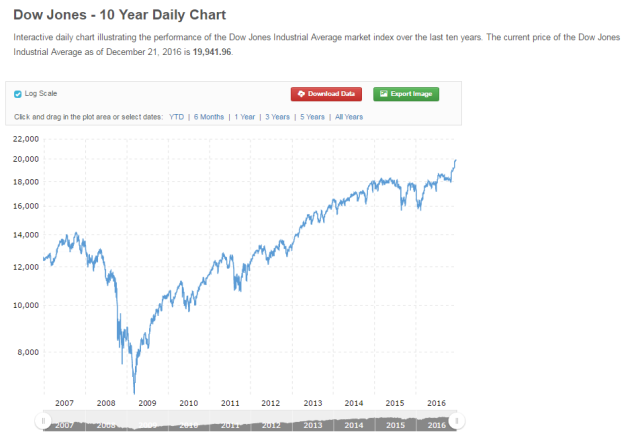
Above, you can see the great dip in 2008, and then see it’s massive and constant recovery through 2016. One would think that the DJ would be at least one indicator of a stronger economy, right? (This probably has something to do with the massive wealth inequality, but aren’t the rich–who are benefitting from the markets–supposed to trickle down their ducats?)
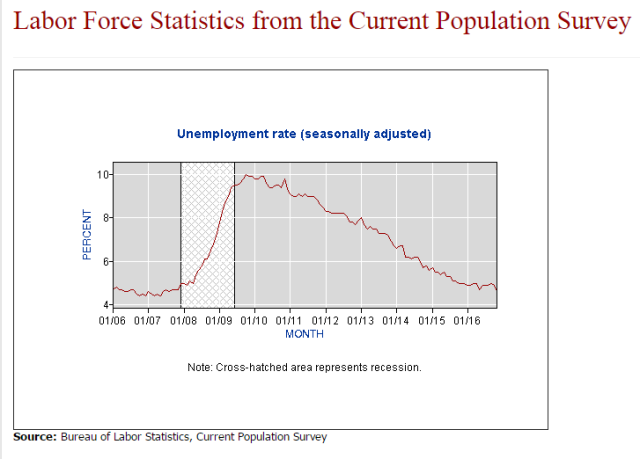
Meanwhile, unemployment has steadily gone down on a similar, inverse trajectory. Again, another seemingly no-brainer as an indicator of the improvement of the economy over the past 8 years. Now I’m sure some out there argue that these numbers are meaningless (ignoring the fact that it’s used by investors to gauge the economy’s health, or it only seems to matter when it’s high so detractors can hypocritically blame the president for a weak economy), so let’s look at their favorite statistic when unemployment is low: Labor Participation.
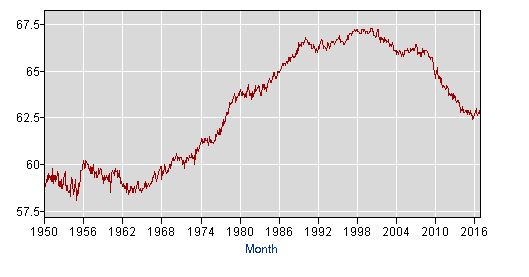
Source: Bureau of Labor Statistics
Here we can see a few things right off the bat. First, the people not participating in the labor market (for whatever reason) has gone down, particularly since the late 1990s, but continued to do so throughout the last 8 years. Second, labor participation is still higher than it’s been since the mid-1970’s. Third, even as participation has shrunk since, say 2008, it has only done so by about 3%. But man, to hear some of Obama’s detractors’ put it, that 3% is just devastating and proof that the economy is failing.
So what’s behind these numbers? Someone has done a more detailed analysis than me (and by someone, I mean various analysts and the Congressional Budget Office). About half of that 3% comes from a sharp increase in those retiring out of the work force (i.e. Baby Boomers–see the chart below). Another 1% is related to temporary factors that are part of the business cycle. That leaves about 0.5% that is accounted for by “unusual aspects of the slow recovery that led workers to become discouraged and permanently drop out of the labor force.” Yup, a whole 1/2 of a percentage point. Seems a lot less impressive when one actually digs into the data, eh?
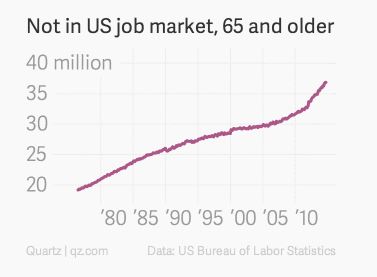
See that steep uptick at the end? Them’s retiring folk not participating in the labor market anymore.
Finally, some folks misrepresented Obama’s concerns about automation acting as a factor that was slowing the recovery of the economy. Well, remember those jobs that Trump “saved” at Carrier? The investment to keep the company competitive (and out of Mexico) is going to be for…automated robots to replace human workers.
Ok, enough about the economy. What about all that “out-of-control” violence spuriously tweeted by Trump?
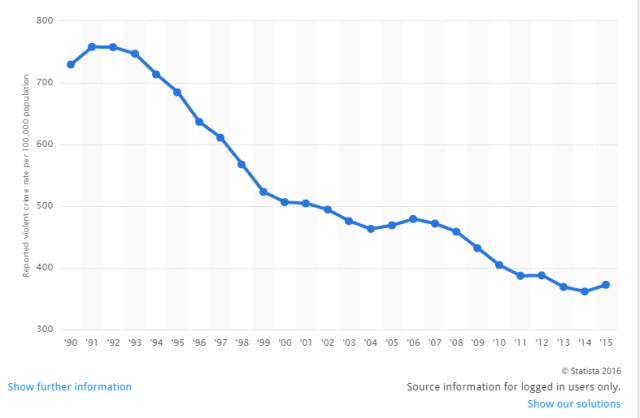
Source: FBI crime statistics.
Well, 2015 and 2016 did see an increase in violent crime, in part because by 2014, such crime was at historic lows for the last 44 years! Perspective is an interesting thing, right? Further, while the murder rate has gone up in some major cities overall, much of that percentage increase is attributed to 10–or 3–cities with more drastic increases (outliers spike averages).
Remember when some folks were worried that Obama would come and take our guns (as late as 2015 and 2016? Shockingly, that didn’t happen. What did happen was continued gun violence, crime, and theft by other citizens. That’s right, the government isn’t taking our guns away, our neighbors are.
How about the Affordable Healthcare Act? (Also known as “Obamacare”). Health insurance premiums are going up, so it must be repealed (so the main part of the argument goes). While that’s true, premium growth has been slower under Obama than his predecessor. Sure there’s problems with it, but fundamentally people agree with many of its premises, particularly in those states that went red and are soon in danger of losing their coverage (and some are realizing that danger).
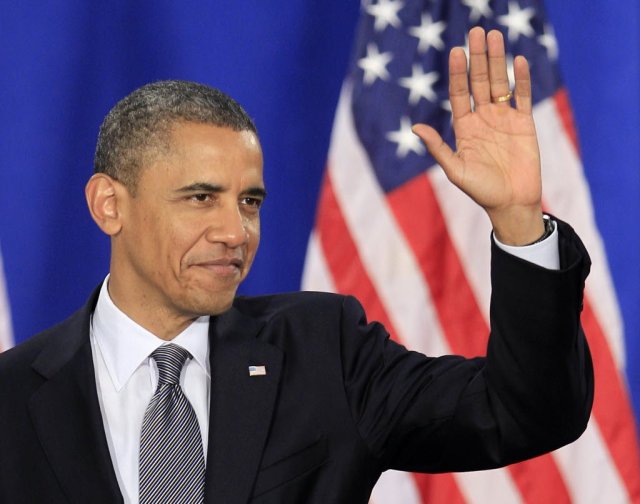
While there were, in fact, several things I was disappointed with over the past 8 years (some foreign policy issues, Eric Holder’s failure to hold anyone accountable for the banking crisis, etc.), overall, I think history will judge President Obama to be a successful, thoughtful, and intelligent president. His farewell speech was poignant, and his two terms were scandal free.
Trump has some mighty big shoes to fill, and I daresay he is not up to the challenge.


